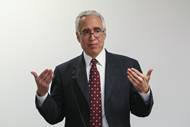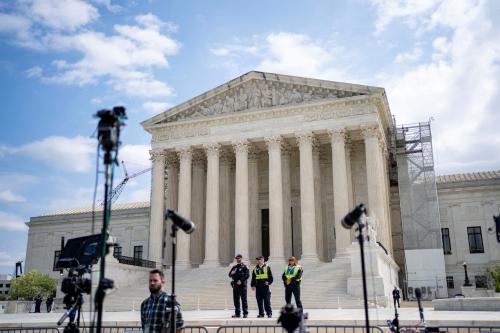Attracting the most talented citizens to public service has been a challenge for America’s leaders since the inception of our nation. Thomas Jefferson expressed concerns about finding honest and capable public servants for his administration, pledging “to seek out the best through the whole Union.” No executive duty “excites more anxious concern…” Jefferson wrote. “No duty, at the same time, is more difficult to fulfill.”
The recruiting challenges facing America’s presidents have intensified since Jefferson’s time. The presidential appointments process has become much more complex, intrusive, and difficult to navigate. As a result, talented Americans are increasingly reluctant to serve in appointed positions. Numerous presidential commissions and task forces have addressed problems in the appointments process over the past 20 years, yet the problems persist. Vacancy rates are rising, delays are escalating, and turnover is increasing. Most importantly, many citizens are opting out of public service altogether.
These problems were evident in a survey of civic and corporate leaders conducted in the fall of 2000 by Princeton Survey Research Associates on behalf of the Brookings Institution’s Presidential Appointee Initiative. Asked whether they would look favorably upon a presidential appointment, these Americans answered both “yes” and “no.” Although most respondents looked favorably on the prospect of serving as an appointee, they were apprehensive about the appointments process and some of its consequences.
The vast majority of the nation?s civic and corporate leaders think serving as a presidential appointee would be an honor. They also see great benefits in presidential service and minimize the drawbacks of taking an appointment. Almost 100 percent of the respondents said they would make valuable contacts through presidential service, eight out of 10 said a presidential appointment would increase their future leadership possibilities, and six out of 10 said they would increase their future earning power. Few said they would lose valuable contacts, risk losing promotions, or be unable to return to their careers.
However, the same group also viewed the current appointments process as unfair, confusing, and embarrassing. Only 43 percent said the process was fair, while 59 percent said it was confusing and 51 percent called it embarrassing. It should be noted that these respondents were significantly more likely to rate the process as unfair, confusing, and embarrassing than appointees who have actually gone through the process. At least for past appointees, familiarity with the process breeds a certain level of understanding and acceptance that may be harder to embrace from afar.



